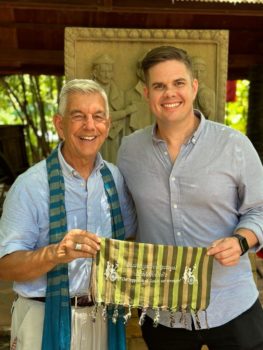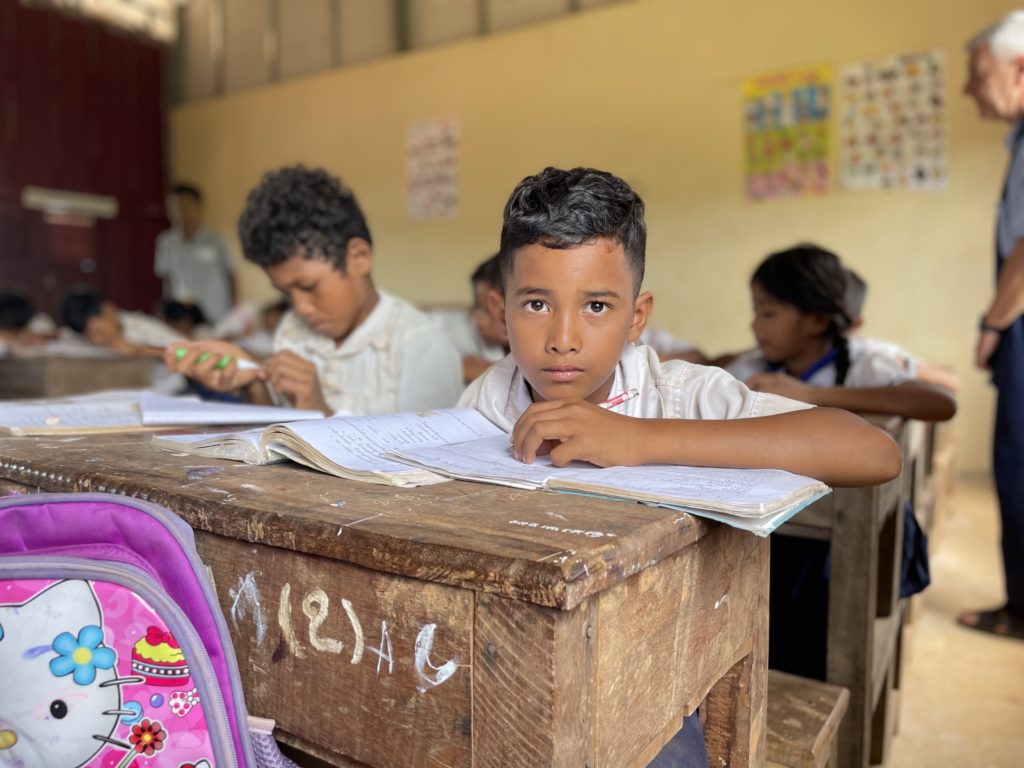Earlier this summer I had the opportunity to spend a week in Cambodia as part of Advantere School of Management’s Purpose to Impact initiative.
It was my first time visiting Southeast Asia and I was excited.
Not excited about spending time at the temples in Siem Reap (I was) nor excited about spending a weekend in Phnom Penh with a friend from graduate school (also excited). No, what excited me most about this trip was the opportunity to spend time with Fr. Kike Figaredo, S.J.
 Kike is a legend. Along with Sister Denise Coghlan, and countless others, he is widely-regarded, in Jesuit circles and others, for his humanitarian work with victims of landmines in Cambodia. As the Apostolic Prefect of Battambang, though, he is incredibly in demand. He doesn’t tend to have three days, let alone one, available on his schedule to meet with people. But here I was, along with my cohort, spending invaluable time with him and his team, learning about the tremendous work done by the Prefecture.
Kike is a legend. Along with Sister Denise Coghlan, and countless others, he is widely-regarded, in Jesuit circles and others, for his humanitarian work with victims of landmines in Cambodia. As the Apostolic Prefect of Battambang, though, he is incredibly in demand. He doesn’t tend to have three days, let alone one, available on his schedule to meet with people. But here I was, along with my cohort, spending invaluable time with him and his team, learning about the tremendous work done by the Prefecture.
I’m not sure what I expected going into the trip. I imagine that I anticipated spending time at the social businesses and centers that the Prefect runs in support of individuals with disabilities. I knew that I would be working with a group from my cohort to analyze the viability of creating a rural hotel. What I did not expect, however, was to get a crash course in Cambodia’s education system.
Located roughly two hours west of Battambang, it was the epitome of Fr. José María Vélaz, S.J.’s words “where the asphalt stops”. Down bumpy, mountain roads, across a river, and in a region once controlled by the Khmer Rouge stood a simple two structure school. Here stood one of the many schools that make up the Prefect ‘s network of rural schools. Donde termina el asfalto, donde se acaba el cemento, donde no llega el agua potable.
Education is at a precarious moment in the country. While huge strides have been made to increase access to education, dropout rates, teacher shortages and learning outcomes are still major obstacles. For the 60% of the population that is under the age of 25, education is the key factor in accessing all other rights.

This experience, and the events in Nicaragua this past August, reaffirmed four of my deeply-held beliefs about education:
- Education is not just a fundamental human right; it is a powerful tool for social transformation. Education promotes social cohesion and stability. It fosters understanding, tolerance, and unity among diverse groups, contributing to peaceful coexistence. It is a powerful force for positive change, bridging divides and building stronger, more inclusive societies.
- Education is instrumental in advancing gender equality. By defending the right to education, we are dismantling barriers that hold girls and women back. We are ensuring that they have equal access to educational opportunities, enabling them to fulfill their potential and contribute to their communities and nations.
- Education, especially at the margins, is under attack. While hope abounds in places such as Cambodia, education is under devastating attack in other parts of the world. Nicaragua is just the latest country to stifle access to quality and inclusive education. Where access is limited, the cycle of poverty, inequality, and social instability persists.
- We all have a role in protecting and promoting education. Defending the right to education is not just a moral imperative; it is a responsibility we all share as global citizens. Your continued support and dedication to Jesuit education initiatives are the difference maker in places like Cambodia and Nicaragua. Together, we are shaping a brighter future, one where education unlocks doors of opportunity for countless individuals and entire communities.
The work being done by the Prefect of Battambang, and more recently Fe y Alegría, is just one more example of the work being done by the Jesuits to ensure access to quality and inclusive education at the margins. To ensure education for the poor is not a poor education. Thank you for being part of this vital mission to support Jesuit education initiatives at the margins.

